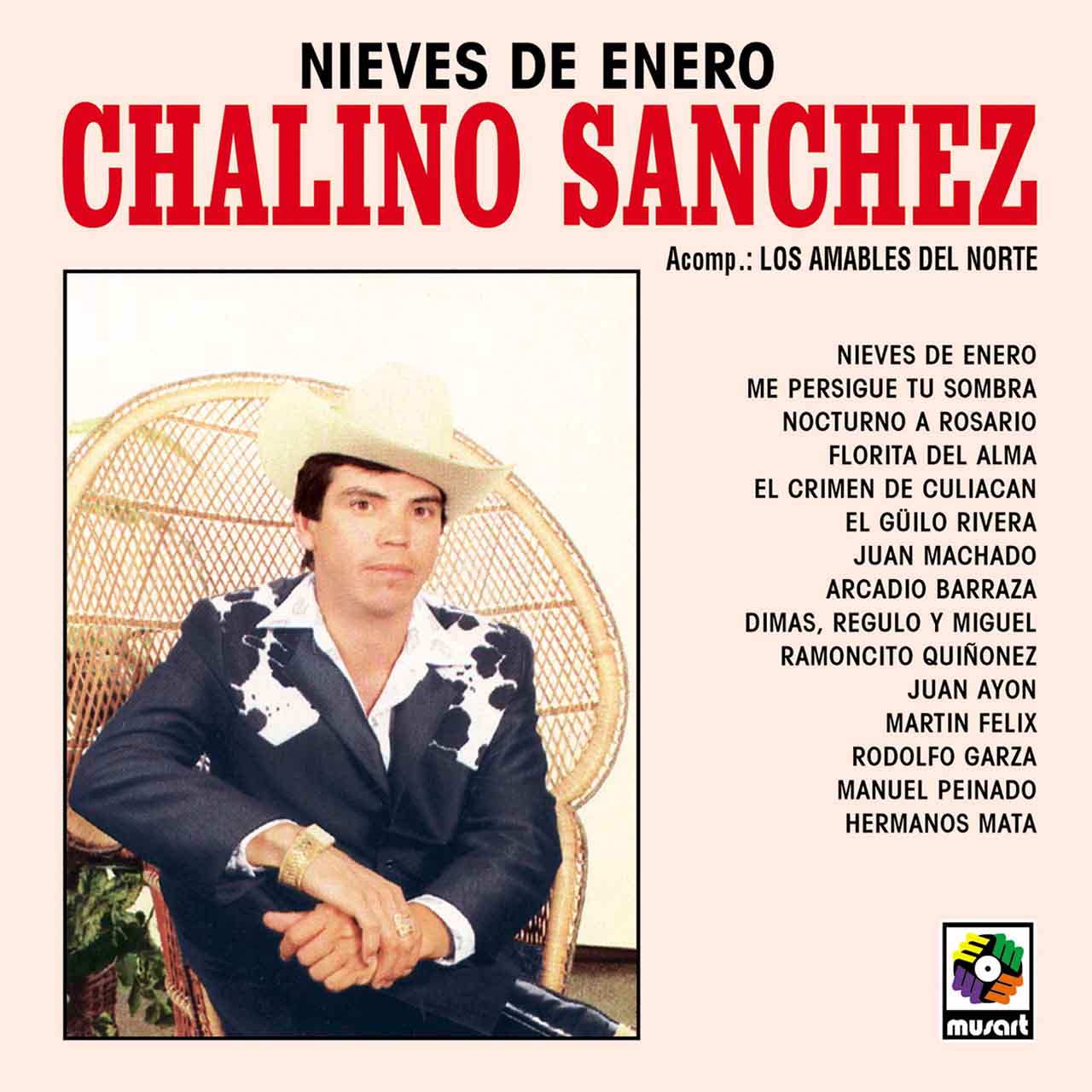“Nieves de Enero” was Chalino Sánchez’s breakthrough song, a sign of the commercial success to come that the Mexican singer would sadly not see in his lifetime. Sánchez, known to fans as the godfather of narcocorrido drug ballads that profile the lives of dealers and convicts and bloody family feuds, famously died of gunshot wounds at age 31 on May 16, 1992. His body was found near the side of a road in Culiacán, in his native Sinaloa, Mexico, the day after a concert. “Nieves de Enero” has lived on as Sánchez’s greatest hit.
Order Chalino Sanchez’s Nieves de Enero.
The song about unrequited love and the torment of being led on by a heartless woman was released in the months before his death, becoming an instant party favorite in both Mexico and Southern California, where Sánchez lived. The romantic tone of “Nieves de Enero,” written by Mario Molina Montes, was relatively different for the singer whose rougher material, recorded and self-distributed on cassettes, had been attracting buyers at swap meets. But it had been another shooting, in January 1992, that had made Sánchez’s name recognizable to the average newspaper reader in California. He was attacked by an audience member during a concert in a club in Coachella, which left him in critical condition. It was after that attack that the young family man, eager to provide for the security of his wife and two children, signed a contract with Musart Records which would allow him to immediately purchase a house for his family.
Nieves de Enero would be the last album he recorded, and his first on Musart. It was released the same week as his death.
The LP’s fifteen songs recorded with the group los Amables del Norte in Los Angeles include several more ballads. “Me Persigue tu Sombra” (“Your Shadow Pursues Me”) continues where “Nieves de Enero” leaves off, lamenting the miserable limbo of desire and unfulfilled possibility that Sánchez, as the fictional narrator, finds himself in. He sheds more tears on “Nocturno a Rosario,” a swaying ode to tortured love. On “Florita del Alma,” Sánchez pays tribute to yet another unattainable woman, alluding to a forbidden flirtation that “would sentence me to death.”
Other songs on the album admiringly tell the stories and struggles of resilient family men of questionable occupations. They are among the most influential songs in the narcocorrido genre, which has often been compared to gangsta rap. Boastful ballads like “Martín Félix,” “Manuel Peinado,” or “Rodolfo Garza” represent the type of songs commissioned by their subject, or, post-mortem, by a family member or friend, that the singer had started writing during a stint in a Mexican prison, and later continued to compose for clients in the Los Angeles area.
Nieves de Enero is an essential Chalino Sánchez album that encompasses the tough and the tear-jerking sides of his short but impactful career. Decades after Sánchez’s fame as a popular hero grew to legend status upon his death, it serves as both a primer to his music for the uninitiated, and a tribute album cherished by his many fans.




